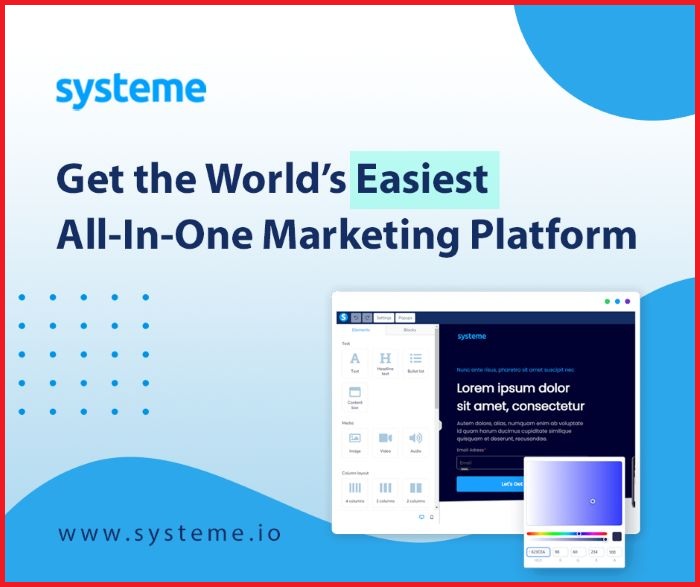Venturing into the world of digital marketing can be daunting, especially when it comes to PPC advertising. A qualified pay-per-click consultant can transform your ad campaigns by providing strategic insights, crafting targeted ads, and optimizing performance. This can significantly boost your return on investment and help your business thrive online.

As businesses strive to capture audience attention online, understanding the nuances of PPC can set you apart. A PPC consultant works with you to develop strategies that maximize your budget and reach the right audience at the right time. Choosing the right partner can be a game-changer for your marketing efforts.
If you’re hesitant about diving into PPC on your own, enlisting expert help can be a wise decision. Consultants not only guide you through building effective campaigns but also assist in measuring and analyzing results. This ensures that your investment yields the best outcomes possible for your business goals.
Key Takeaways
- PPC consulting maximizes ad campaign effectiveness.
- Consultants provide strategic guidance and optimization.
- Expert help is key to measuring and improving PPC performance.
Understanding PPC
Pay-per-click (PPC) advertising is a crucial tool for online marketing. It allows you to target specific audiences and measure results effectively. Here, you will learn what PPC is, explore its benefits, and see how it compares to organic results.
Definition of Pay-Per-Click
PPC is a type of online advertising where you pay a fee each time someone clicks on your ad. It is essentially buying visits to your site rather than earning them organically. PPC is often used on search engines like Google, where ads are displayed based on keyword searches. The amount you pay per click is determined by factors like your bidding strategy and quality score, which measures how relevant your ad and landing page are to the user. Understanding these elements can help optimize your campaigns for better results and cost efficiency.
Benefits of PPC Advertising
The advantages of using PPC are numerous. First, PPC provides immediate visibility on search engines, which helps drive traffic to your website. You also have control over your budget, as you can set a maximum cost per click and daily or monthly spending limits. Additionally, PPC offers precise targeting options, so you can reach users based on location, device, time, and even specific interests. These features make PPC an attractive option for businesses looking to increase their online presence and sales quickly.
PPC Vs. Organic Results
There are distinct differences between PPC and organic results. Organic results are earned through SEO (search engine optimization), which involves optimizing your site content to rank higher in search engine results pages (SERPs). This process can take time and effort but does not cost money per click. On the other hand, PPC ads appear immediately and are placed above or below organic results, giving you a potentially more prominent position. While PPC provides quick results and complete budget control, organic strategies build long-term credibility and can result in sustained visibility without ongoing ad spend. Both strategies can complement each other, helping to maximize your reach in search results.
The Role of a PPC Consultant
A PPC consultant plays a critical role in helping businesses improve their online ad performance. Their expertise can lead to better ROI and higher conversion rates. Each subsection highlights the skills, responsibilities, and qualifications that make these experts essential.
Expertise of a PPC Expert
As a PPC expert, you bring a deep understanding of online advertising. Your knowledge allows businesses to optimize their digital marketing strategies. Familiarity with platforms like Google Ads and Bing Ads is crucial.
You analyze data to uncover trends that could improve ad campaigns. Knowing how to use analytics tools allows you to track performance effectively. Your ability to adjust keyword strategies to boost visibility shows your expertise.
Key Responsibilities of a Consultant
Your main responsibility is to manage and improve PPC campaigns. You do this by researching valuable keywords and creating effective ad copy. Monitoring campaign performance to ensure it meets targets is part of your role.
You need to keep clients informed about the progress of their campaigns. Reporting on metrics like click-through rates and conversion rates demonstrates accountability. Your goal is to maximize ROI for your clients.
Certifications and Skills
To be successful, you should have certifications like Google Ads or Bing Ads. These show your proficiency in managing PPC campaigns. Being skilled in platforms like Google Analytics is also important.
You need strong communication skills to explain complex data to clients. Creative skills in writing and designing appealing ad content are valuable. Your skill set makes you adaptable in improving campaign effectiveness.
Developing a Winning PPC Strategy
Creating a successful PPC strategy involves clear steps. You’ll need to understand your audience, choose the right keywords, write engaging ads, and manage bidding and budgets effectively. Let’s break down each step.
Audience Targeting and Brand Awareness
To start, focus on precise audience targeting. You need to define who your ideal customers are. Use demographic data, like age, location, and interests, to segment your audience. This helps in crafting ads that resonate and can drive brand awareness.
Use tools like Google Analytics to gather insights about user behavior. A clear picture of the customer’s journey enables you to customize campaigns. Engagement improves when ads speak directly to the audience’s needs and interests.
Monitor and adjust your campaigns regularly. Pay attention to metrics like impressions, clicks, and conversions. This process improves not just immediate results but also long-term brand development. It’s about meeting the audience where they are at the right time.
Keyword Research and Selection
Keyword research is vital for a successful PPC campaign. Use tools like Google Keyword Planner to find the best keywords. Focus on search volume and competition levels to decide which terms are worth bidding on.
Target a mix of short-tail and long-tail keywords. Short-tail keywords are broad and have high search volume but also more competition. Long-tail keywords are more specific and easier to rank for due to less competition.
Constantly update your keyword list. People’s search habits change, and new trends emerge. Regular reviews ensure you’re targeting relevant keywords that potential customers are likely to use. This vigilance ensures you maximize your ad spend budget and improve campaign effectiveness.
Crafting Compelling Ad Copy
Your ad copy should capture attention and encourage clicks. Start with a strong headline that grabs interest. Follow with a clear message that explains the benefits of your product or service. Use language that speaks directly to your audience’s needs or problems.
Highlight unique features or offers in the text. A call to action (CTA) is necessary to tell viewers what to do next, like “Learn More” or “Buy Now”. The CTA should be visible and persuasive.
Remember to test different versions of your ad copy. A/B testing can help identify which messages and formats attract the most clicks and conversions. Continuous improvement in ad copy keeps your advertising campaign fresh and effective.
Bidding Strategies and Budget Management
A well-planned bidding strategy can save you money and improve results. Decide between manual and automated bidding based on your experience and available time. Manual bidding gives control, while automated options use algorithms for efficiency.
Set a clear budget by analyzing previous campaign performances. Allocate more budget to high-performing keywords and reduce spend where returns are low. This ensures efficient use of your PPC campaign budget.
Monitoring is key. Pay attention to cost-per-click (CPC) and return on ad spend (ROAS) to evaluate profitability. Adjust bids to remain competitive, but ensure you are not overspending on low-return investments. Effective management aligns your bidding with overall business goals.
Building Effective Campaigns
Creating successful pay-per-click (PPC) campaigns involves strategic use of advertising platforms and techniques to enhance performance. This includes maximizing Google Ads and Bing Ads, effectively using search and display ads, optimizing for conversions, and using remarketing strategies.
Utilizing Google Ads and Bing Ads
Google Ads and Bing Ads are essential tools for PPC campaigns. Google Ads offers a vast reach, with access to millions of potential customers through precise targeting. Bing Ads, though less popular, can be cost-effective and provide access to a different audience. You should focus on keyword selection, budget management, and ad extensions.
Both platforms offer analytics tools to track performance. Regularly analyzing this data helps refine your strategies and improve ad relevance. Using both networks allows you to maximize exposure and gain insights into various customer segments.
Leveraging Search and Display Ads
Search ads appear in search engine results and are crucial for targeting users actively searching for relevant products or services. Properly chosen keywords determine the success of these ads. You need crisp ad copy that clearly communicates value.
Display ads, on the other hand, appear across various websites. They are useful for creating brand awareness. Designing visually appealing ads can capture attention. Consider different ad formats like banners, videos, and interactive ads to engage your audience.
Conversion Optimization Techniques
Improving conversion rates is a key goal of effective PPC campaigns. Start by ensuring that landing pages are aligned with the ad content. Clear calls-to-action (CTAs) and simplified navigation enhance user experience.
A/B testing different versions of ads and landing pages can help identify what works best. Focus on load times as slow pages can lead to high bounce rates. Use analytics tools to track conversions and identify drop-off points for optimization.
Remarketing and Advanced Strategies
Remarketing targets users who have previously interacted with your site, re-engaging them with tailored ads. This approach can significantly boost conversion rates. You can use dynamic ads to show specific products users viewed.
Advanced strategies include using audience segmentation to create personalized marketing messages. Applying data analytics improves audience targeting. You might also explore lookalike audiences to expand reach. By using remarketing alongside advanced strategies, you can effectively nurture leads and encourage repeat business.
Measuring and Analyzing Performance
In the competitive world of pay-per-click (PPC) consulting, measuring and analyzing performance is crucial. By focusing on analytics, KPIs, ROI, ROAS, and key metrics like click-through rates and cost per click, you can make informed decisions to optimize your campaigns.
Understanding Analytics and KPIs
Analytics provide detailed insights into how your PPC campaigns are performing. By tracking various Key Performance Indicators (KPIs), you can understand which parts of your strategy are working and where improvements are needed. Important KPIs include click-through rates (CTR), cost per click (CPC), conversion rates, and cost per conversion.
Using tools like Google Analytics, you can monitor these metrics to evaluate campaign effectiveness. By understanding these numbers, you can adjust bids, keywords, and ad copy to enhance performance and achieve your advertising goals.
Return on Investment (ROI) and Return on Ad Spend (ROAS)
ROI and ROAS are crucial in measuring the financial success of your PPC campaigns. These metrics help you determine if the money spent on campaigns is yielding profitable returns. ROI calculates the net profit from your campaign relative to its cost, while ROAS focuses specifically on the revenue generated per dollar spent on advertising.
Monitoring these metrics allows you to identify which campaigns or strategies deliver the best results. By comparing ROI and ROAS, you can make strategic decisions on budget allocation and optimize your advertising efforts for maximum profitability.
Click-Through Rates and Cost Metrics
Click-through rates (CTR) indicate the effectiveness of your ad in capturing audience attention. High CTR means your ads resonate well with viewers, leading to more clicks and potential conversions. Monitoring CTR can guide adjustments in ad copy or targeting to improve engagement.
Cost metrics, including cost per click (CPC) and cost per conversion, are essential for budgeting and evaluating campaign efficiency. Lowering these costs while maintaining high performance helps stretch your advertising budget further, allowing you to maximize return on investment. Analyzing these metrics regularly ensures your campaigns are both cost-effective and successful.
Optimization and Management
When managing PPC campaigns, it’s important to focus on maximizing results through ongoing optimization and effective management. This process involves regularly improving campaigns, boosting landing pages, and tracking the outcomes with detailed reporting.
Ongoing Campaign Optimization
In PPC management, maintaining your campaign’s performance is crucial. You should regularly adjust your bids and ad copy to match user intent and maximize ROI. Also, prioritize effective keywords to drive traffic and use A/B testing to find the best-performing ads.
Create a schedule to assess and refine campaigns frequently. You should also stay updated with platform changes and emerging trends to ensure your strategy is always aligned with best practices.
Landing Page Performance and Enhancements
Landing pages play a critical role in converting clicks into customers. Ensure your landing pages are optimized by improving load speeds, readability, and mobile compatibility. Also, focus on a clear call to action that guides users to the desired outcome.
Use tools to analyze user behavior and make necessary improvements. Regular testing and updates help in maintaining high engagement and conversion rates.
PPC Management and Reporting
Effective PPC management requires transparent and detailed reporting. You should establish clear metrics for performance tracking to evaluate your campaign’s success. Also, use data-driven insights to make informed decisions and optimize budget allocation.
Schedule weekly or monthly reports to monitor key metrics such as click-through rates, conversion rates, and cost per acquisition. These insights enable you to adjust strategies and reach your marketing goals efficiently.
Choosing a PPC Consulting Service
When selecting a PPC consulting service, it’s important to consider the expertise and reputation of the professionals or agencies involved. Client satisfaction and past success stories can provide valuable insights into their effectiveness.
Evaluating PPC Experts and Agencies
Look for PPC experts or agencies with a proven track record. Years of experience and specialized knowledge are crucial. Check if they have managed successful campaigns for businesses similar to yours.
Consider the range of services offered. Some agencies provide comprehensive pay-per-click consulting services, such as Google-certified management and data-driven strategies to drive high-quality leads. Compare this with others that might not offer as wide a range of services.
Pricing models are important. Some PPC consultants charge hourly rates, while others work on a monthly retainer. You can expect rates to vary widely, from $10 to $500 per hour for individuals and around $9,000 to $10,000 monthly for agencies. Knowing what fits your budget is key.
Client Satisfaction and Success Stories
Client satisfaction is a significant indicator of a PPC consultant’s reliability. Look for comments and reviews that speak highly of their expertise and success. A good client satisfaction score often reflects the consultant’s ability to meet client goals effectively.
Seek out success stories to understand the outcomes achieved by the PPC agency or expert. High lead conversion rates and increased customer engagement are positive indicators of a successful PPC strategy. Testimonials can reveal how effectively the consultant tailored strategies to meet specific business needs.
Consider any guarantees offered, such as paying only if satisfied. This can provide added assurance and reduce financial risk when engaging a new PPC consulting service.
Advancing with PPC Innovations
Pay per click (PPC) innovations are shaping the future of digital advertising. Key developments include emerging trends that offer new strategies for optimizing campaigns and the integration of social media to amplify reach and engagement.
Emerging Trends in Digital Advertising
In the world of digital advertising, staying ahead of the curve is crucial. Automation and machine learning are becoming essential tools in PPC campaigns. These technologies analyze data to optimize bids and target audiences more precisely.
Voice search optimization is another trend gaining traction. As more users rely on voice-activated devices, tailoring ads to align with conversational queries helps capture this growing audience.
Furthermore, video advertising continues to rise. Interactive and engaging video content can lead to higher click-through rates and increased conversions. Keeping an eye on these trends can provide a competitive edge in digital advertising.
Integrating Social Media with PPC
Integrating social media marketing with PPC efforts can enhance campaign effectiveness. Platforms like Cliffex highlight how using social channels expands audience reach beyond traditional search engines.
Leveraging social media ads allows you to tap into the vast user base of platforms such as Facebook and Instagram. Targeting specific demographics and interests can improve campaign precision.
Cross-platform tracking is important for monitoring user behavior across different channels, enabling you to refine strategies and increase engagement.
Frequently Asked Questions
Pay-per-click (PPC) consulting is a valuable service for businesses looking to improve their online advertising. This guide answers common questions about the role and impact of PPC consultants.
What are the typical responsibilities of a PPC consultant?
A PPC consultant manages PPC campaigns, focusing on strategy, keyword research, ad creation, and performance analysis. They optimize ad spend and track campaign results to ensure they meet business goals.
How do PPC consultants charge for their services?
PPC consultants may charge hourly rates, monthly retainers, or a percentage of ad spend. The pricing model often depends on the consultant’s experience and the scope of the campaign.
What is a competitive rate for PPC consulting services?
Rates for PPC services can range significantly. Hourly fees might be between $50 to $150, while monthly retainers can vary from a few hundred to several thousand dollars depending on campaign size and complexity. More details are available in the PPC for Lawyers guide.
What qualifications should a PPC consultant have?
A qualified PPC consultant should have certifications like Google Ads or Bing Ads, strong analytical skills, and experience in managing successful campaigns. They should stay updated with industry trends to ensure they employ the best strategies.
How does one measure the effectiveness of PPC campaigns?
Effectiveness is measured by tracking metrics such as click-through rates (CTR), conversion rates, and return on ad spend (ROAS). Regular reports and analysis help determine which strategies are working and where adjustments are needed.
What industries benefit the most from PPC consulting?
Industries that see significant benefits from PPC include legal, healthcare, e-commerce, and professional services. These fields gain advantage as potential clients often search online for their offerings.
Law firms, for example, can improve client acquisition with targeted campaigns, as discussed in Clicks to Clients.





